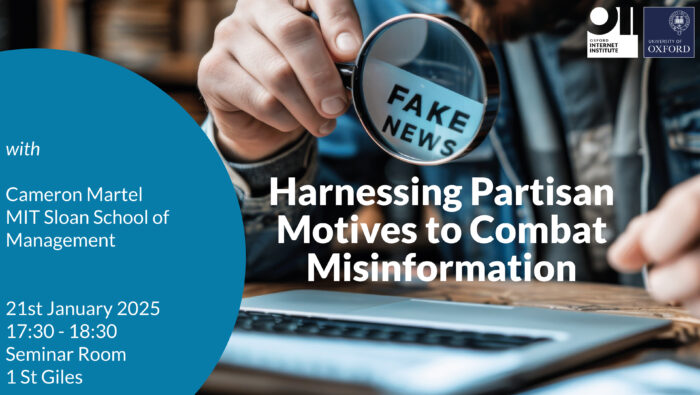
Cameron Martel
PhD Candidate, Massachusetts Institute of Technology
I’m a fifth year PhD candidate at MIT Sloan School of Management, researching why people believe and share misinformation, what forces shape the online social networks through which misinfo spreads.
